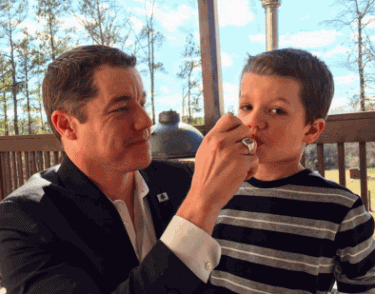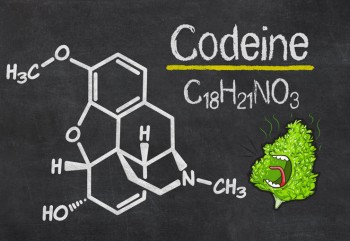
A groundbreaking study from the University of Cambridge has revealed a devastating indictment of our healthcare system's failure to serve autistic individuals. While autistic people are generally less likely to use recreational substances than the general population, those who do use drugs are nine times more likely to be self-medicating for autism-related symptoms and mental health conditions. This isn't a story about drug abuse - it's a story about medical abandonment and the predictable consequences of leaving vulnerable populations to fend for themselves.
The research, published in The Lancet Psychiatry, surveyed over 2,300 autistic and non-autistic individuals and found that autistic adults were using marijuana, cocaine, and amphetamines to manage sensory overload, improve mental focus, reduce anxiety, and cope with depression. Many participants explicitly described their drug use as "self-medication" and noted that recreational substances allowed them to reduce doses of prescribed medications that often came with severe side effects.
This isn't recreational drug use in the traditional sense - it's underground medicine practiced by people who've been failed by conventional healthcare systems. When someone uses cocaine to manage sensory processing issues or marijuana to reduce anxiety because their doctor can't or won't provide effective alternatives, we're witnessing the human cost of medical gatekeeping and drug prohibition.
The most tragic aspect of this study is how it exposes the cruel irony of current drug policy: the same substances that autistic people are risking arrest to obtain for medical purposes could be legally prescribed in a rational healthcare system. Instead, we force vulnerable individuals into criminal markets to access medicine that could dramatically improve their quality of life if provided through proper medical channels.
The War on Drugs isn't just failing autistic people - it's actively harming them by criminalizing their attempts to manage symptoms that conventional medicine hasn't adequately addressed. It's time to update our social firmware and become adults about drug use, because people will find ways to get relief whether the law permits it or not.
The Medical Abandonment Crisis
The Cambridge study reveals a healthcare system that's systematically failing autistic individuals, forcing them to seek relief through underground drug markets rather than legitimate medical channels. This isn't happening because autistic people prefer illegal drugs - it's happening because conventional healthcare often can't or won't provide effective treatments for autism-related symptoms.
Autistic individuals face unique challenges navigating healthcare systems that weren't designed with their needs in mind. Sensory processing issues can make medical environments overwhelming, communication differences can lead to misunderstanding between patients and providers, and the lack of autism-specific training among healthcare professionals often results in inadequate or inappropriate care.
The study found that autistic people were using recreational drugs to manage symptoms that should be addressed through proper medical care: sensory overload, anxiety, depression, focus issues, and sleep problems. These aren't frivolous concerns - they're debilitating symptoms that significantly impact quality of life and daily functioning.
What makes this situation particularly tragic is that many of the substances autistic people are using for self-medication have legitimate therapeutic potential that's being ignored due to drug prohibition. Cannabis, for example, has well-documented effects on anxiety, sensory processing, and sleep regulation - exactly the symptoms that autistic individuals are trying to manage.
The study also revealed that autistic individuals were using substances to "mask" their autism symptoms - a behavior known as "camouflaging" or "compensating" that has been linked to emotional exhaustion, worse mental health outcomes, and increased suicide risk. When people feel compelled to use drugs to appear "normal" in social situations, we're witnessing the psychological damage caused by a society that doesn't accept neurodivergent individuals as they are.
Perhaps most damning is the finding that many autistic participants preferred self-medication with recreational drugs because it allowed them to reduce doses of prescribed psychiatric medications that often came with severe side effects. This suggests that conventional treatments aren't just inadequate - they're often worse than street drugs in terms of side effect profiles and effectiveness.
The healthcare abandonment becomes even clearer when you consider the study's finding that autistic individuals were over four times more likely to experience vulnerability related to substance use, including addiction, using drugs to cope with trauma, and substance use associated with suicide. These aren't people casually experimenting with drugs - they're people in crisis using whatever tools they can access to survive.
Cannabis as Autism Medicine
Cannabis emerges from this research as a particularly relevant therapeutic option for autistic individuals, addressing multiple symptoms that conventional medicine struggles to treat effectively. The endocannabinoid system plays crucial roles in sensory processing, anxiety regulation, social behavior, and cognitive function - all areas where autistic people often experience challenges.
For sensory processing issues, cannabis can help regulate the overwhelming sensory input that many autistic individuals experience daily. THC and CBD both interact with sensory processing pathways in ways that can reduce hypersensitivity to light, sound, touch, and other stimuli that can make ordinary environments unbearable for autistic people.
Anxiety and depression, which occur at much higher rates in autistic populations, respond well to cannabis treatment in many cases. The study found that autistic individuals were over three times more likely to use substances for mental health symptoms, and cannabis offers anxiolytic and mood-stabilizing effects without many of the severe side effects associated with conventional psychiatric medications.
Sleep disorders are extremely common among autistic individuals, and cannabis has well-documented benefits for sleep onset, sleep maintenance, and sleep quality. Many autistic people struggle with racing thoughts, sensory sensitivity, and anxiety that interfere with sleep, and cannabis can address multiple aspects of these sleep difficulties simultaneously.
Social anxiety and communication challenges that many autistic people experience can also be helped by cannabis, particularly strains with balanced THC and CBD ratios that reduce anxiety without impairing cognitive function. Some autistic individuals report that cannabis helps them feel more comfortable in social situations and better able to engage with others.
Repetitive behaviors and rigid thinking patterns that characterize autism spectrum conditions may also respond to cannabis treatment. The endocannabinoid system influences behavioral flexibility and cognitive adaptability, and cannabis may help some autistic individuals develop more flexible responses to environmental changes.
The study's finding that many participants used recreational drugs to reduce prescribed medication doses is particularly relevant for cannabis, which often has fewer and less severe side effects than conventional psychiatric medications. Antipsychotics, antidepressants, and anti-anxiety medications frequently cause weight gain, sexual dysfunction, cognitive dulling, and other quality-of-life impacts that cannabis can often avoid.
Importantly, cannabis also offers dosing flexibility that's often missing from conventional treatments. Autistic individuals can titrate their dose based on daily symptoms, environmental stressors, and individual needs rather than being locked into fixed dosing schedules that don't account for the variable nature of autism symptoms.
The Underground Medicine Network
The Cambridge study reveals an underground medicine network where autistic individuals are essentially conducting their own clinical trials with recreational drugs because legitimate medical research and treatment options are limited by prohibition and medical conservatism. This represents a massive waste of human potential and scientific opportunity.
When autistic individuals report that marijuana helps with sensory overload, cocaine improves focus, or MDMA reduces social anxiety, they're providing valuable data about potential therapeutic applications that could be studied and developed through proper medical channels. Instead, this information remains anecdotal because researching these substances remains difficult due to legal restrictions.
The study found concerning patterns of vulnerability, including autistic individuals being "forced, tricked, or accidentally taking drugs" and engaging in substance use during childhood. This suggests that prohibition isn't protecting autistic people from drug-related harms - it's exposing them to additional risks by forcing them into unregulated markets where safety protections don't exist.
The underground nature of this self-medication also means that autistic individuals aren't receiving proper medical guidance about drug interactions, appropriate dosing, or potential risks. They're left to navigate complex pharmacology on their own, often with limited access to accurate information about the substances they're using.
The criminal justice implications are particularly troubling for autistic individuals, who may be more vulnerable to police interactions due to communication differences and behavioral characteristics that can be misunderstood as suspicious or non-compliant. When we criminalize substances that autistic people are using as medicine, we're essentially criminalizing disability-related healthcare needs.
The economic burden of underground self-medication also disproportionately affects autistic individuals, who often face employment discrimination and financial instability. Having to purchase medicine through illegal markets at inflated prices creates additional financial stress for people who are already economically vulnerable.
Reforming Drug Policy for Vulnerable Populations
The Cambridge study provides compelling evidence that current drug policy is actively harming autistic individuals by criminalizing their attempts to manage symptoms that conventional medicine hasn't adequately addressed. Reform is urgently needed to protect vulnerable populations who are using substances for legitimate medical purposes.
Medical cannabis programs represent an obvious starting point for reform, given cannabis's therapeutic potential for autism-related symptoms and its relatively low risk profile compared to many conventional treatments. States with medical cannabis programs should explicitly include autism spectrum conditions as qualifying conditions, and healthcare providers should receive training on cannabis therapeutics for neurodivergent populations.
Expanded access to psychedelic therapy could also benefit autistic individuals, particularly for anxiety, depression, and social difficulties that often accompany autism. MDMA-assisted therapy, psilocybin treatment, and other psychedelic interventions show promise for conditions that disproportionately affect autistic people.
Harm reduction services specifically designed for autistic populations could help reduce the risks associated with self-medication while providing support for people who choose to continue using substances for symptom management. This might include drug checking services, safer use education, and mental health support that's accessible to neurodivergent individuals.
Healthcare provider training on autism and substance use is essential for improving care quality and reducing the medical abandonment that drives autistic people toward self-medication. Providers need to understand autism-specific symptoms, communication differences, and the legitimate therapeutic needs that autistic individuals are trying to address through substance use.
Research funding for autism and substance use should be dramatically increased to better understand the therapeutic potential of various substances for autism-related symptoms. The underground self-medication revealed by this study represents a vast untapped source of data about potential treatments that could be developed through proper medical channels.
Legal protections for medical necessity could help shield autistic individuals from prosecution when they're using substances to manage disability-related symptoms. Some jurisdictions have implemented medical necessity defenses that recognize legitimate therapeutic use even when substances aren't formally approved for those purposes.
The Sticky Bottom Line: Medicine vs. Punishment
The Cambridge study exposes the fundamental cruelty of current drug policy: we're criminalizing disabled people for trying to manage their symptoms when conventional medicine fails them. This isn't about recreational drug use or moral judgment - it's about basic human compassion and medical necessity.
When autistic individuals are nine times more likely to use recreational drugs for self-medication, we're not witnessing a drug abuse problem - we're witnessing a healthcare crisis. These people aren't seeking to get high for fun; they're seeking relief from symptoms that significantly impact their quality of life and daily functioning.
The solution isn't more aggressive drug enforcement or moral lecturing about the dangers of self-medication. The solution is expanding access to effective treatments, including cannabis and other substances that show therapeutic potential for autism-related symptoms. It's providing healthcare that actually works instead of forcing people into underground markets to find relief.
Every autistic person using street drugs to manage sensory overload, anxiety, or other symptoms represents a failure of our medical and social systems. We've created a situation where vulnerable individuals have to risk arrest and use unregulated substances because we've failed to provide adequate alternatives through legitimate channels.
The War on Drugs isn't protecting autistic people - it's abandoning them. It's forcing them to choose between suffering with untreated symptoms or risking criminalization to access substances that could improve their lives. This is medical cruelty disguised as drug policy.
We need to update our social software and recognize that people will seek relief from suffering whether the law permits it or not. The question isn't whether autistic individuals will use substances to manage their symptoms - it's whether we'll provide safe, legal, medically-supervised access or continue forcing them into dangerous underground markets.
Cannabis legalization, expanded psychedelic therapy access, comprehensive healthcare reform, and evidence-based drug policy could dramatically improve outcomes for autistic individuals while reducing the harms associated with unregulated self-medication. The choice is between medicine and punishment, between compassion and cruelty.
The Cambridge study shows us the human cost of choosing punishment over medicine. It's time to choose differently.






